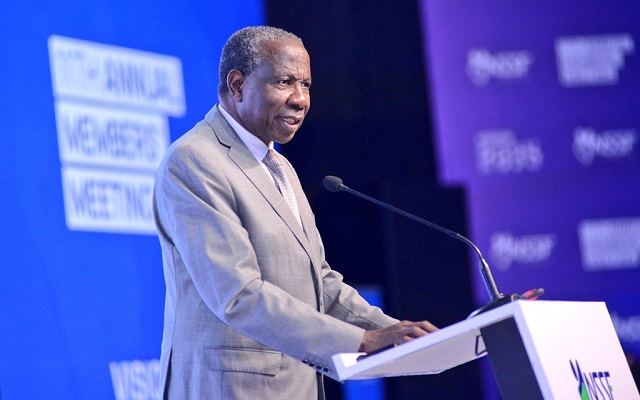
The Fund is challenged to create more solutions that will further address social protection in line with the International Labour Organization
Kampala, Uganda | JULIUS BUSINGE | Uganda’s National Social Security Fund declared a 10% interest rate for savers for the fiscal year 2022/2023 compared to 9.65% the previous year but it remains below the 12-year average of 11.48%.
This translates to a substantial Shs1.591 trillion that has already been credited to the accounts of NSSF members. However, the announcement has received mixed reactions from savers, with some expressing satisfaction and others noting a historical trend of higher interest rates.
“I am happy but not very happy,” said Jonan, a saver adding, “There is a trend showing years where our accounts were credited with an interest rate that was above 10%.”
NSSF data reveals that from 2012/2013 to 2020/2021, the Fund consistently declared interest rates above 11%, attributing variations to different performance factors linked to the economies in which the Fund invests.
During the 11th Annual Members’ Meeting in Kampala on Sept. 26, NSSF Managing Director Patrick Ayota acknowledged the challenging investment environment in Uganda and the region. He highlighted the Fund’s ability to increase revenue through strategic asset allocation, remaining profitable despite market difficulties.
“Although inflation remained under control at 4.8%, challenges such as the reduction in the value of stock markets in Uganda and Kenya, currency fluctuations, and reduced long-term bond yields increased pressure on the Fund’s performance,” Ayota explained.
Finance Minister Matia Kasaija commended NSSF for its remarkable performance in key performance indicators despite global challenges, including the Russia-Ukraine war and investor flight from developing markets.
“I am especially glad that the Fund’s assets registered growth again from Shs17.26 trillion in Financial Year 2021/22 to Shs18.56 trillion in Financial Year 2023/24. Many naysayers did not imagine the possibility of growing this Fund to Shs20 trillion. That you will achieve that strategic objective a year ahead of schedule is laudable,” he said.
He added: “The second KPI I am interested in is the money you generated during the year because that shows the productivity of the investments that I approved during the year. I am therefore glad that the total realised income earned increased by 15% from Shs1.9 trillion in the Financial Year 2021/22 to Shs2.2 trillion in the Financial Year 2022/23.”
Fund urged to create new products
Betty Amongi, the Minister of Gender, Labour, and Social Development, praised NSSF’s performance and pledged to fast-track regulations for new benefits and products aimed at providing more value to members.
She, however, challenged NSSF to create more solutions that will further address social protection in line with the International Labour Organization, the global body charged with developing international policies and programmes to improve working and living conditions worldwide.
Martin Nsubuga, CEO of the Uganda Retirement Benefits Regulatory Authority (URBRA), emphasized the importance of addressing low coverage in retirement benefits. He called for urgent policy responses to prevent future retirees from facing old-age poverty.
Nsubuga noted that NSSF’s market control, dating back to 1985, has seen significant in the past decade, reflecting adherence to regulatory requirements and indicating potential market expansion with proper nurturing and supervision.
He also said, “The growth we see in occupational schemes today has mostly shot up in the past nine years. This not only reflects adherence to the regulatory requirements but also indicates a great market potential if nurtured and well-supervised.”
 The Independent Uganda: You get the Truth we Pay the Price
The Independent Uganda: You get the Truth we Pay the Price





